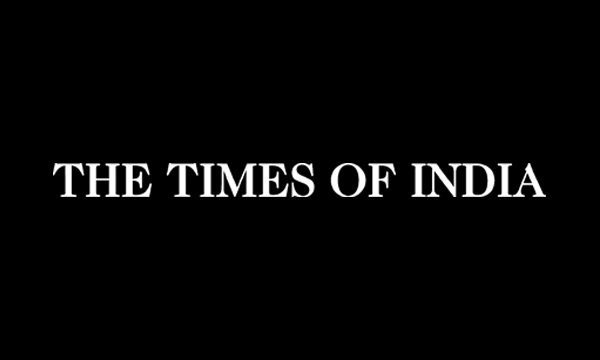In May, Typhoon Mawar, the world’s strongest storm this year, was barreling toward the Philippines, where I live and work. Filipinos immediately began evacuating by the thousands. Mawar then slammed through Guam, carrying winds that gusted to 140 mph and killing most of the island’s power, but swerved away from the Philippines at the last minute. Yet we were soon under threat once again because another typhoon, Guchol, was hurtling toward us.
We know well the enemy we’re facing. The Philippines is No. 1 on the World Risk Index, suffering from more than 20 typhoons and storms a year. These weather catastrophes can be scary. I once saw my father, a tough-as-nails veteran of World War II, run screaming down the stairs of our house as a typhoon ripped our roof off.
Such disasters strike all over the world with growing scale and frequency, threatening and destroying lives and property. Typically, nonprofit relief agencies such as the American Red Cross step into the breach to lend a hand. But seldom are these rescue efforts adequate without significant help from the private sector.
For example, major earthquakes in Turkey and Syria quickly drained government coffers. In short, funding lags far behind demand. Last year, the cost to meet humanitarian needs was estimated at $51.7 billion, but the available funding amounted only to roughly half the need, according to the United Nations’ Office for the Coordination of Humanitarian Affairs.
But my organization, the Philippine Disaster Resilience Foundation, has a practical proposal that would finance relief and recovery efforts adequately and solve this problem.
The Philippines serves as a case in point for the value of public-private partnership in the face of calamity. As Mawar came within hours of swiping our northern shores, private companies in the Philippines prepared to meet the moment. Our organization brought together the country’s top corporations, along with the United Nations and nongovernmental organizations, to partner in confronting the potential crisis.
As a consequence, the Philippines’ private sector was poised to lend a hand, with companies that normally compete with each other agreeing to cooperate. Nestle was ready to send out rescue teams. Water concessionaires Manila Water and Maynilad would help provide water at strategic locations. UPS trucks carrying relief goods were all set to roll. Private electric companies and utilities geared up to bring power back online. Mobile phone carriers Smart and Globe dispatched satellite phones to business zones, identified safe evacuation sites and prepared to deploy teams to restore telecoms service.
Private-sector champions have emerged everywhere. In response to an earthquake in Pakistan in 2010, Agility, TNT, UPS and Maersk delivered relief supplies to its citizens that saved lives. To counter an Ebola outbreak in Africa in 2014, the private sector constructed isolation units for patients and donated thermal scanners to detect infected individuals. To this day, DHL operates a 500-person disaster response team all over the world that dispatches logistics specialists to calamities within 72 hours to inventory and warehouse relief supplies.
In reality, economics motivates the private sector as much as altruism and compassion. In a disaster, revenues among local small businesses often plunge. Big corporations rely on those entrepreneurs to get products to market for consumers to buy.
But obstacles remain. Some humanitarian organizations still distrust businesses. They may suspect corporations that intervene in relief operations of being interested only in outmaneuvering competitors and generating profits.
One solution to the humanitarian funding gap is for the private sector to treat disasters as an opportunity not for charity but, rather, for investment. For example, the Boston Consulting Group, an adviser to the Connecting Business Initiative, a 14-country network of business groups focused on disasters, could engage its finance and investing partners to craft a financial instrument, such as a humanitarian impact bond, that’s designed to tap the dynamism of capital markets. Social investors and funds such as Vital Capital, Triodos Investment Management and others are increasingly willing to put money to work doing good in the world while earning attractive returns.
The United Nations Development Program is working on a diverse set of options such as risk-layered financing, insurance and humanitarian bonds to finance recovery from disasters. Precedents already exist for such an approach. In 2017, the International Committee of the Red Cross, in collaboration with development agencies from donor countries, issued a $27 million humanitarian impact bond to fund physical rehabilitation centers in Africa for five years. Investors would get their money back at the end of the loan depending on the success of the project.
The U.N. could similarly partner with donor institutions or even the World Bank to issue a humanitarian impact bond that would be focused on victims of calamities. It could fund housing for the displaced, a need chronically underfunded, or the rehabilitation of small businesses. Recipients would repay the loans once they have jobs or, in the case of businesses, once they start earning revenue.
Private enterprise, acting in the public interest, can keep saving the day. But financing rescue initiatives for people desperately in need will require imagination and innovation. Issuing bonds to cope with humanitarian crisis promises to deliver a value that goes well beyond mere dollars and cents.
____
ABOUT THE WRITER
Butch Meily is president of the Philippine Disaster Resilience Foundation. He is the author of the memoir “From Manila to Wall Street: An Immigrant’s Journey With the First Black Billion-Dollar Dealmaker,” which Heliotrope Books will release in 2025.







